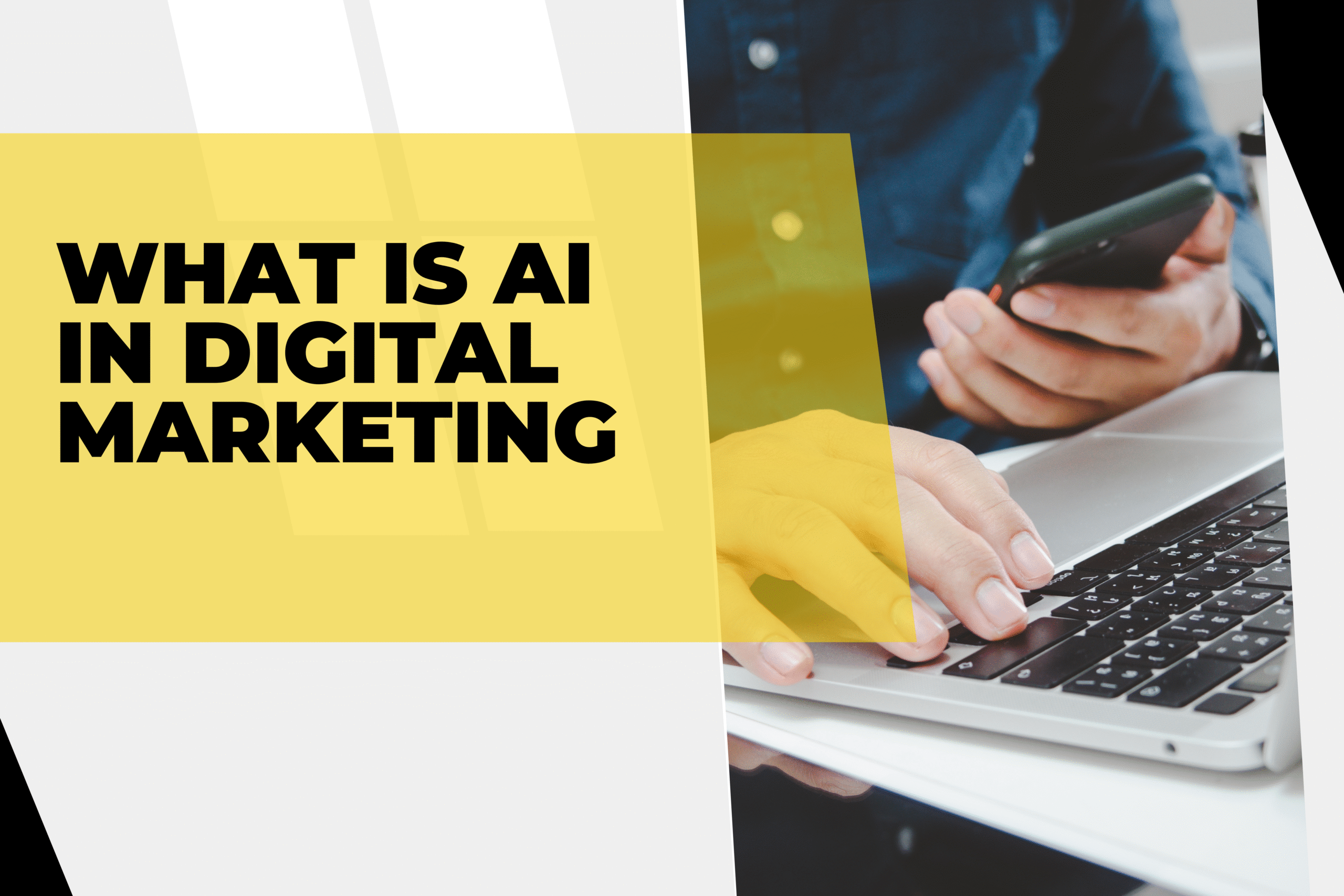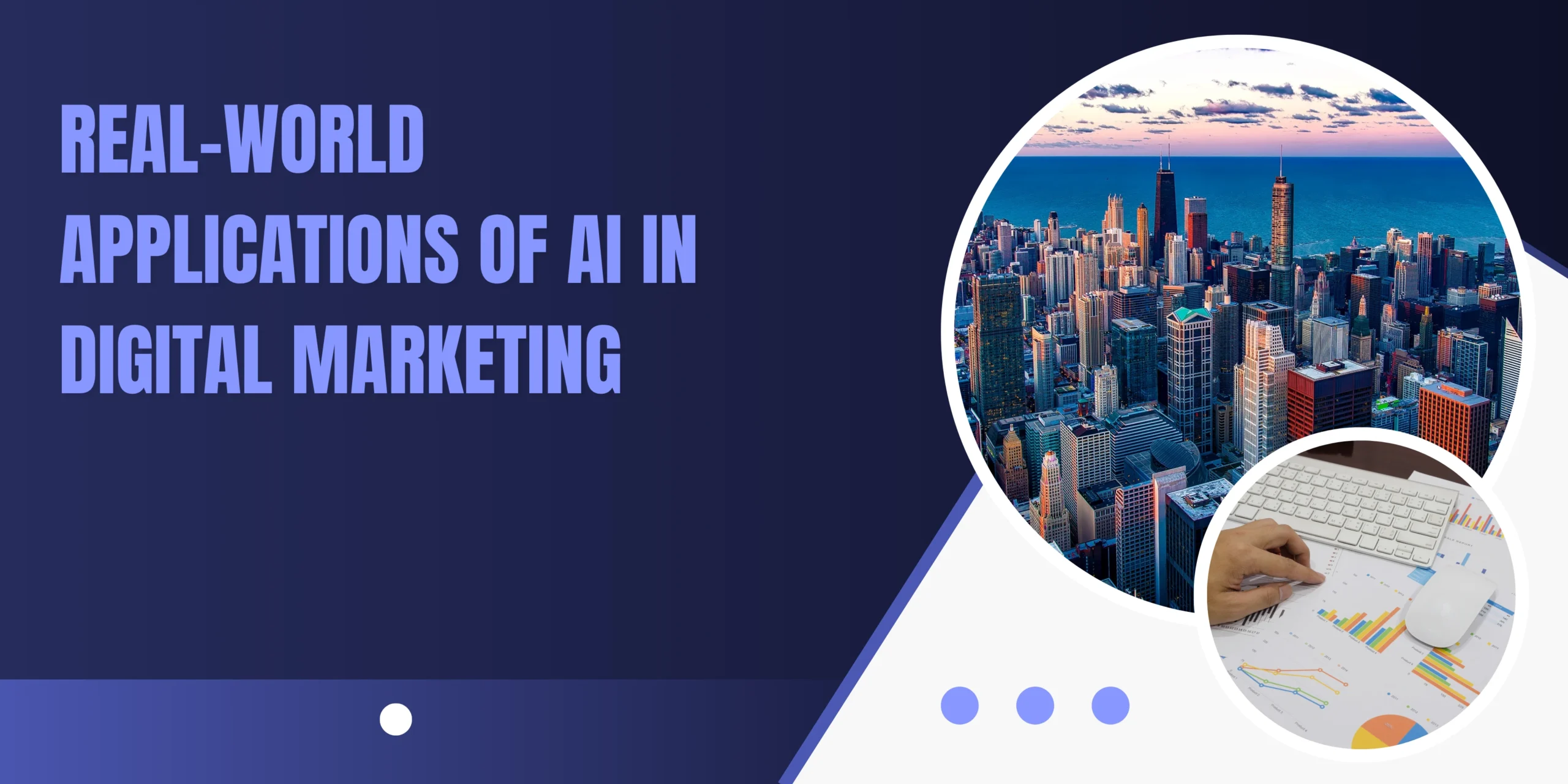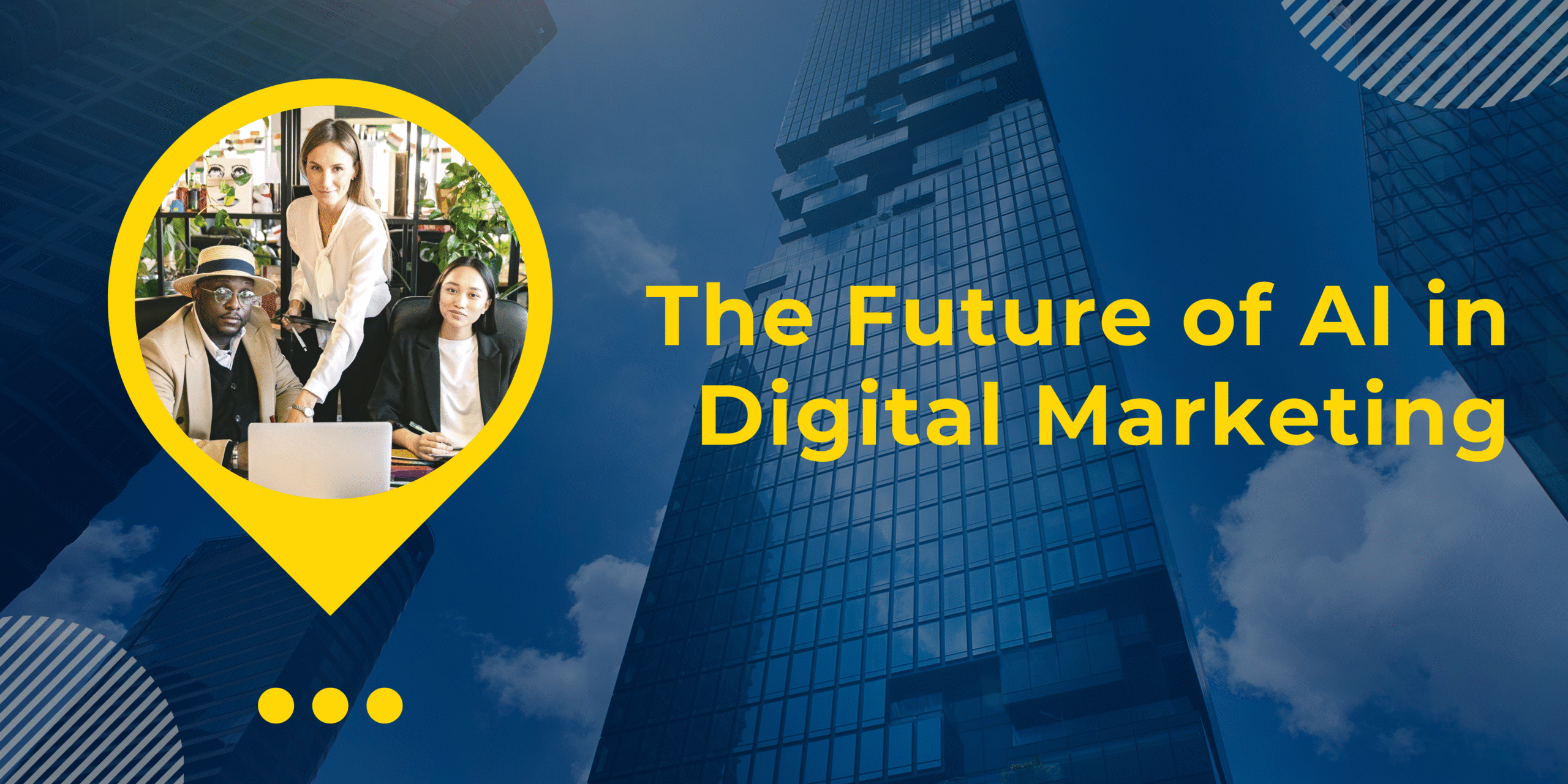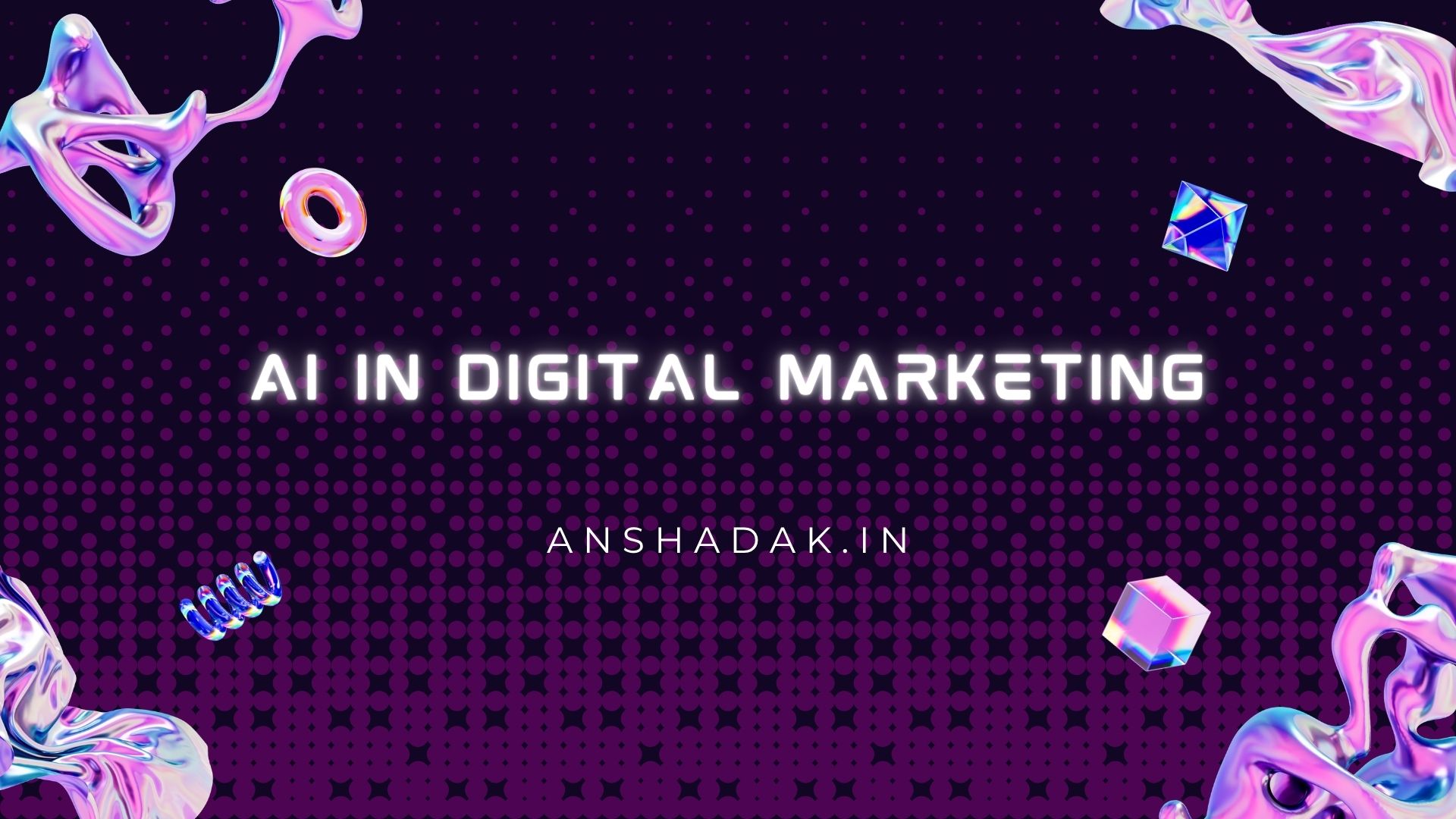AI in Digital Marketing Strategy: What Every Marketer Should Know
In the fast-evolving world of online marketing, staying ahead means embracing innovation. One of the most powerful tools transforming how brands connect with audiences is AI in digital marketing. From personalized ads to smart content creation, artificial intelligence is not just a trend — it’s a strategic necessity.
In this blog, we’ll break down what every marketer needs to know about AI in digital marketing, explore real-world applications, and highlight how it’s reshaping the digital strategy landscape.
What Is AI in Digital Marketing?
AI in Digital Marketing involves the integration of advanced technologies such as machine learning, natural language processing, and data analytics to transform the way marketers plan and execute their strategies. These intelligent systems help automate repetitive tasks, streamline workflows, and provide deeper insights into customer behavior. By analyzing vast amounts of data in real time, AI in Digital Marketing enables businesses to make smarter, faster decisions and adapt quickly to market trends.
One of the most significant advantages of using AI in Digital Marketing is the ability to deliver highly personalized and targeted content to audiences. Instead of relying on broad demographics, marketers can now tailor campaigns based on individual user behavior, interests, and preferences. This level of personalization not only improves user experience but also increases engagement, conversion rates, and overall campaign effectiveness.
As consumer expectations continue to rise, leveraging AI in Digital Marketing has become essential for staying competitive in the digital landscape. It’s not just a tool for automation—it’s a powerful ally that enhances creativity, drives innovation, and helps brands connect with their audiences in more meaningful ways.
Why AI Is Crucial for Modern Marketing Strategy
-
Personalization at Scale
AI in digital marketing enables marketers to create highly personalized experiences by analyzing vast amounts of user data, including browsing behavior, purchase history, preferences, and demographic information. This intelligent technology makes it possible to understand each customer on an individual level, rather than relying solely on generalized segments.
Imagine being able to tailor email campaigns, product recommendations, and even website content for thousands—or millions—of users in real time. That’s the transformative power of AI in digital marketing. It allows brands to deliver the right message to the right person at the right moment, significantly improving engagement, retention, and conversion rates.
With AI in digital marketing, personalization goes far beyond just adding a user’s name to an email—it means creating dynamic content and offers that truly resonate with each individual’s unique interests and behavior. As consumer expectations for relevant and seamless experiences continue to grow, AI is becoming an essential part of every successful digital marketing strategy.
-
Smarter Customer Segmentation
Machine learning algorithms play a vital role in modern marketing by analyzing large volumes of customer data to uncover patterns, behaviors, and preferences. These intelligent systems can process data far more quickly and accurately than traditional methods, allowing marketers to create highly detailed and precise customer segments. By understanding how different groups of users interact with content, products, or services, marketers can craft tailored messages that speak directly to the needs and interests of each segment.
This level of precision leads to more relevant and engaging marketing campaigns, which in turn boosts customer satisfaction and loyalty. Whether it’s targeted emails, personalized product recommendations, or dynamic ad creatives, segmentation powered by machine learning helps deliver the right content to the right audience at the right time. As a result, businesses see improved engagement rates, higher click-throughs, and better conversion outcomes—making machine learning a cornerstone of effective digital marketing strategies.
-
Real-Time Analytics
With AI in digital marketing, brands gain the ability to monitor campaign performance in real-time, offering a level of insight and responsiveness that was once impossible. AI tools continuously collect and analyze data across multiple channels—such as websites, social media, email, and paid ads—providing marketers with up-to-the-minute information on what’s working and what isn’t.
This real-time analysis empowers teams to make informed, data-driven decisions quickly. Instead of waiting for post-campaign reports, marketers can adjust ad spend, tweak messaging, or refine targeting strategies on the fly. For example, if an AI system detects a drop in engagement or conversion rates, it can automatically recommend or even implement optimizations to improve performance instantly.
By using AI in digital marketing, businesses not only become more agile but also significantly reduce wasted time and budget. The ability to act on real-time data helps ensure that campaigns stay effective, relevant, and aligned with customer behavior—ultimately leading to stronger results and a higher return on investment.
-
Predictive Analytics
AI in digital marketing goes beyond analyzing current trends—it actively predicts future customer behavior. By processing large volumes of historical data, browsing patterns, purchase history, and engagement metrics, AI can forecast what a customer is likely to do next. Whether it’s predicting which products a user might buy, when they’re most likely to convert, or which channels they prefer, AI provides valuable insights that help marketers stay one step ahead.
These predictive capabilities are a game-changer for strategic planning. Instead of relying on assumptions or gut feeling, marketers can use data-backed forecasts to design highly targeted campaigns that align with customer intent. For instance, if AI predicts that a segment of users is likely to abandon their carts, automated workflows can trigger personalized offers or reminders at just the right time to win them back.
Furthermore, by anticipating customer needs and behaviors, businesses can allocate their marketing budgets more wisely—focusing resources on high-converting audiences, optimizing ad spend, and maximizing ROI. In short, predictive analytics powered by AI in digital marketing transforms guesswork into precision, making every marketing decision smarter and more impactful.
Real-World Applications of AI in Digital Marketing 
AI-powered chatbots provide 24/7 support, answer queries, and improve customer satisfaction without human intervention.
-
Content Generation
Tools like ChatGPT can create product descriptions, blog outlines, or social media captions, saving marketers hours of work — all thanks to AI in digital marketing.
-
Voice Search Optimization
With the rise of voice assistants like Alexa and Siri, optimizing for voice search is essential — and AI helps understand natural language queries more effectively.
-
Ad Targeting and Programmatic Advertising
AI automates ad placement and targeting based on real-time user data, ensuring your ads reach the right people at the right time.
-
Email Marketing Automation
AI tools analyze subscriber behavior and send personalized emails, improving open and click-through rates.
Benefits of Using AI in Digital Marketing
- Increased ROI from smarter targeting
- Time-saving automation tools
- Improved user experience
- Better decision-making with data
- Enhanced creative workflows
It’s no longer about guessing what works. With AI in digital marketing, you let data and intelligent systems guide your strategy.
The Future of AI in Digital Marketing
As technology continues to evolve at a rapid pace, AI in digital marketing is set to become even more powerful, intelligent, and deeply integrated into every aspect of the customer journey. What was once considered cutting-edge—such as chatbots and basic automation—is now just the beginning. The next generation of AI tools will bring capabilities like hyper-personalized video advertisements tailored to individual viewer preferences, real-time mood-based content delivery, and advanced influencer matching algorithms that align brands with creators based on audience behavior, values, and engagement metrics.
This progression means that marketers will have the ability to craft highly targeted, emotionally resonant campaigns at scale—something that was previously unattainable. As AI systems continue to learn and improve over time, the precision and effectiveness of digital marketing strategies will increase exponentially.
Adopting AI in digital marketing early on isn’t just an option—it’s a strategic advantage. Brands that embrace these innovations now will stay ahead of the curve, better understand their audiences, and achieve superior results compared to those that lag behind. In fact, industry forecasts suggest that by 2030, nearly 80% of all digital customer interactions—from browsing behavior to purchasing decisions—will be shaped or influenced by AI in some form. This transformation will redefine how businesses connect, communicate, and convert in the digital age.
Final Thoughts
Using AI in digital marketing doesn’t replace human creativity — it amplifies, enhances, and supports it in powerful ways. While creativity fuels the emotional connection and storytelling that make marketing resonate, AI brings the data-driven precision and automation that make those efforts more effective and scalable.
Rather than viewing AI as a substitute, marketers should see it as a strategic ally that handles the heavy lifting of data analysis, audience segmentation, trend detection, and performance optimization. This allows creative professionals to focus more on ideation, design, and crafting compelling narratives—while AI ensures those ideas reach the right people at the right time.
Whether you’re fine-tuning ad copy, optimizing campaign timing, automating email workflows, or analyzing customer behavior, AI in digital marketing provides the tools to work smarter, not harder. It brings efficiency to repetitive tasks, uncovers insights hidden in complex data sets, and opens up new possibilities for hyper-personalized experiences.
In essence, the real magic happens when human creativity and artificial intelligence work hand in hand. Together, they empower marketers to build more innovative, impactful, and results-driven campaigns in a constantly evolving digital landscape.
Start small, experiment with AI tools, and build a future-proof strategy. The marketers who adapt today will lead tomorrow.
